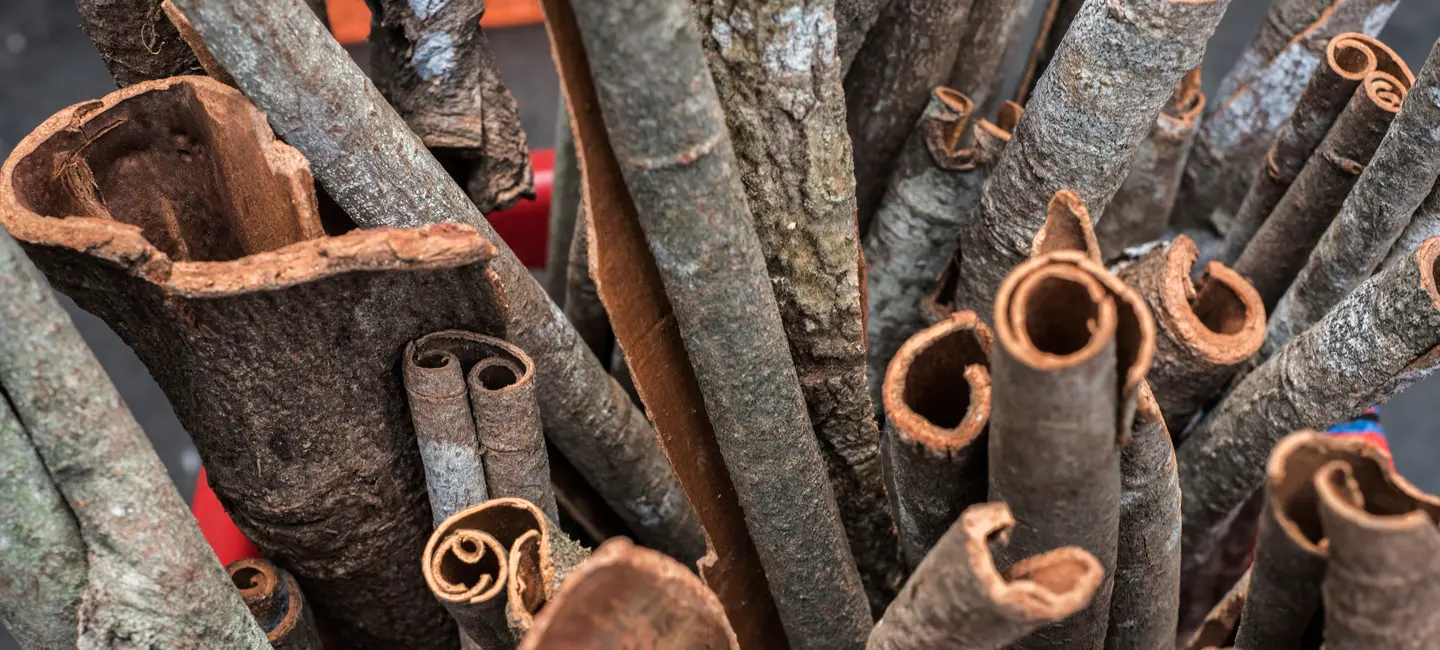
Saigon cinnamon is a type of cinnamon made from the bark of trees (Cinnamomum loureirii) that grow in Vietnam. It's used in traditional Chinese medicine.
Saigon cinnamon contains chemicals that might affect blood sugar and also have anti-inflammatory effects. It also contains a chemical called coumarin which might harm the liver.
People use Saigon cinnamon for diabetes, rheumatoid arthritis (RA), and other conditions, but there is no good scientific evidence to support these uses.
Don't confuse Saigon cinnamon with cassia cinnamon, Ceylon cinnamon, Indian cassia, or Padang cassia. These are not the same.
Is It Effective?
There is interest in using Saigon cinnamon for a number of purposes, but there isn't enough reliable information to say whether it might be helpful.
Is it Safe?
When taken by mouth: Saigon cinnamon is commonly consumed in foods. But Saigon cinnamon contains a chemical called coumarin, which has been linked with adverse effects. People should avoid taking Saigon cinnamon in doses that provide more than 0.1 mg/kg of coumarin daily. For a person weighing about 154 lbs, this would be about 1 gram (0.25 tsp) of Saigon cinnamon daily.
Saigon cinnamon is possibly unsafe when consumed in large amounts, long-term. The coumarin in Saigon cinnamon might cause liver injury at doses as low as 50 mg daily, which is found in about 7 grams of Saigon cinnamon. There isn't enough reliable information to know if Saigon cinnamon is safe when used as medicine in smaller amounts.
Special Precautions & Warnings
Pregnancy and breast-feeding: There isn't enough reliable information to know if Saigon cinnamon is safe to use when pregnant or breast feeding. Stay on the safe side and avoid use.
Liver disease: Saigon cinnamon contains a chemical that might harm the liver. If you have liver disease, do not take Saigon cinnamon in amounts larger than those normally found in food.
Medications that can harm the liver (Hepatotoxic drugs)
Interaction Rating=Moderate Be cautious with this combination.
Saigon cinnamon might harm the liver. Some medications can also harm the liver. Taking Saigon cinnamon along with a medication that can harm the liver might increase the risk of liver damage.
Herbs and supplements that might harm the liver: Saigon cinnamon might harm the liver. Taking it with other supplements that can also harm the liver might increase the risk of liver damage. Examples of supplements with this effect include garcinia, greater celandine, green tea extract, kava, and kratom.
There are no known interactions with foods.
There isn't enough reliable information to know what an appropriate dose of Saigon cinnamon might be. Keep in mind that natural products are not always necessarily safe and dosages can be important. Be sure to follow relevant directions on product labels and consult a healthcare professional before using.
Baker's Cinnamon, Canela de Saigón, Cinnamomum loureirii, Cinnamomum loureiroi, Nikkei, Nhucque, Que Thanh, Saigon Cassia, Saigonkanel, Saigonzimt, Saigonzimtbaum, Vietnamese Cassia, Vietnamese Cinnamon, Yukgyenamu.
Information on this website is for informational use only and is not intended to replace professional medical advice, diagnosis, or treatment. While evidence-based, it is not guaranteed to be error-free and is not intended to meet any particular user’s needs or requirements or to cover all possible uses, safety concerns, interactions, outcomes, or adverse effects. Always check with your doctor or other medical professional before making healthcare decisions (including taking any medication) and do not delay or disregard seeking medical advice or treatment based on any information displayed on this website.
© TRC Healthcare 2024. All rights reserved. Use and/or distribution is permitted only pursuant to a valid license or other permission from TRC Healthcare.
